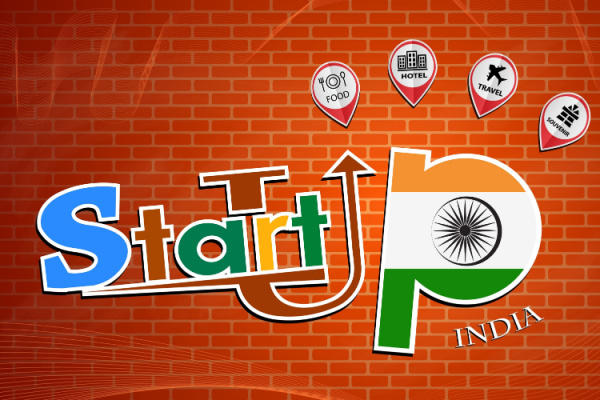The entrepreneurial and innovative fabric of India is woven into the country's age-old business environment. Startups in this booming industry are changing the face of business in India and around the world, thanks to the sector's phenomenal growth. These firms highlight how talented Indian entrepreneurs are across many different industries, including healthcare, e-commerce, technology, and financial services. This dynamic environment is becoming even more vibrant as new Indian startups appear on a daily basis, each bringing with them unique ideas and approaches.
The most successful Indian entrepreneurs stand out from the crowd because of their innovative ideas, capacity to scale, and fearlessness in the face of big problems. These leading businesses are icons of India's thriving startup scene and global leaders in the startup industry. These emerging businesses are paving the way for other pioneers to follow in their footsteps by prioritizing innovation and environmental responsibility.
Without a doubt, the startup scene in India is among the most exciting worldwide. Some very successful firms have emerged from India in recent years, and they've had an influence all around the world. The third-largest startup ecosystem in the world is located in India, according to research. With almost 61,000 startups since January 2022, India is behind only China and the US. To encourage a spirit of innovation and entrepreneurship, the Indian government sponsors Best Startups in India.
In recent years, India's startup scene has grown into a major driver of economic growth, with ambitions to become a technological powerhouse on a worldwide scale. The success of many Indian businesses is attributable to the widespread encouragement of young people to pursue careers in their chosen areas of study. Some of India's most successful startups include Zomato, Flipkart, and Ola.

There is no better place to hone one's skills and climb the corporate ladder than a startup. Because professional-level competence is necessary in any industry, taking advanced classes like data science schools or cloud computing programs may increase your employment opportunities, even though beginning-level training courses could be helpful. Learn more about the top Indian startups and how they're shaking up the startup scene in this article.

Best Startups in India: 2024 Updated
Startups can only thrive in nations where governments have enacted policies and regulations that are conducive to their growth. The Startup India initiative is one example of how India is working to establish such frameworks; it enables IT businesses to register to receive tax incentives, improved compliance, and expedited processing of intellectual property rights (IPR). For creative early-stage businesses in India, it provides a variety of funding and mentorship programs to help them succeed. Here is a list of some of the most exciting new startups, led by men and women alike, that are taking India's business to the world!
CRED
You may pay your credit card bills and earn rewards with CRED, a platform that was founded in 2018. Users earn "CRED coins" when they pay bills via the CRED app, thanks to the platform's new paradigm. You can use this money to buy stuff, participate in contests, and join workshops later on. Among the many services offered by this Bangalore-based firm is a premium goods catalog and credit. This new company thinks it can encourage better financial habits by offering incentives.
Sticking to a high-end base and maintaining consistent growth throughout the years is a rare occurrence for most firms. More than a thousand merchants will be able to accept CRED coins when the capability is introduced, according to CRED. An online storefront is also in the works for the startup. The firm is obviously up to much more than simply giving out incentive coins to its clients.
Vernacular.ai
This AI-first SaaS startup aims to be the global speech automation and AI platform. The company delivers speech recognition and voice assistants to banking, food and beverage, and hospitality. Their services require the least human intervention and can tackle complex challenges. Founded in 2016, the company raised $5.1 million in 2020.
Despite retrenchments and wage cuts last year, Vernacular.ai has quadrupled its personnel. Multifunctional employees are helping the company become the world's most appealing Voice AI platform. Voice and automation are predicted to rise rapidly, therefore Vernacular.ai may expand.
Shiprocket
Shiprocket, based in New Delhi, India, is an e-commerce logistics platform that enables businesses to optimize their shipping and delivery operations. It offers a wide range of shipping solutions, including domestic and international shipping, integrations with multiple couriers, and advanced tracking and analytics tools. Shiprocket has emerged as a leading player in the e-commerce logistics sector, known for its affordable pricing, seamless integration with popular e-commerce platforms, and focus on simplifying shipping for small and medium-sized businesses.
PharmEasy
Indian online pharmacy and medical store PharmEasy sells OTC medications, diagnostic testing, and medical devices. Since its 2015 founding in Mumbai, Maharashtra, the company has grown rapidly. Every medical store merchandise is available online at this pharmacy. PharmEasy investors also funded Swiggy and Byju's. In 12 months, entrepreneurs Dharmil Sheth and Dr. Dhaval Shah hope to reach over 100,000 pharmacies in India's emerging marketplaces.
The company has grown because of its crucial role during the COVID-19 pandemic. The Indian competitors of PharmEasy are 1mg and Netmeds. This health-IT business raised $350 million, becoming India's first e-pharmacy unicorn. The financing was raised after PharmEasy merged with Medlife. PharmEasy bought 100% of Medlife and received 19.95% of the amalgamated entity. Both companies have united to compete with Netmeds (Reliance Jio), Flipkart, and Amazon Pharmaceutical, which just entered the Indian pharmaceutical market.
Digit Insurance
Digit Insurance was formed in 2016 to simplify insurance products for everyone and transform people's views about them. Digital Insurance received $340K from Virat Kohli and Anushka Sharma in 2020. More than 20 lakh Indians have purchased COVID-19 and other disease insurance, including malaria, chikungunya, dengue, and others. The Bangalore company, Digit, broke even in 2020 due to reduced operational costs and strong business KPIs. Chairman Kamesh Goyal said the company grew 30% in 2020 despite the insurance industry's struggles. Digit has won "Hottest Startups in India 2019," "Asia's Best General Insurance Company of the Year 2019," "Fintech 250 List," and more.

Meesho
Meesho, founded in 2015 by IIT-Delhi graduates, is projected to become a major e-commerce distribution channel for homepreneurs selling products on WhatsApp, Facebook, and Instagram. After raising $300 million, the company is worth $2.1 billion.
The Meesho ecosystem lets small enterprises operate online. Facebook has invested in this $490 million platform. On an online marketplace, Meesho manages logistics, orders, and payments for sellers. It connects over 13 million Indian city entrepreneurs selling groceries, home and kitchen appliances, clothes, and more. Meesho has the potential to revolutionize retailing as Indian social commerce grows 55%-60%. It faces GlowRoad, Dealshare, and CityMall, which are also attracting investors. Dealshare, formed in 2018, raised $21 million in December 2020.
Groww
Groww lets consumers invest in stocks, ETFs, Mutual funds, IPOs, and more. The platform supports mobile and online apps. Four ex-Flipkart employees launched the startup in 2016 after seeing how hard it is to invest in India. Now, Groww boasts over 15 million users. Groww claims that over 60% of its shareholders are from smaller Indian cities that have never invested. According to founder Lalit Keshre, Groww is used across India, not just in big cities. All big cities have working-class, young users who want to invest their money. Groww achieved unicorn status in 2021 with $83 million raised. This company plans to invest this much in new goods, talent, and investor education.
Nykaa
In 2012, Nykaa launched an online beauty and fashion business. The company sells affordable beauty and health items. Interestingly, it raised $25 million in March 2020 and is now worth $1.2 billion. Katrina Kaif and Alia Bhatt are company investors. The platform founder, former investment banker, Falguni Nayar, wants to provide hundreds of products.
It has around 55 retail outlets and fulfills 1.5 million orders monthly. Nykaa has over 5 million monthly active users and 500 brands in its stores and website. The company launched Nykaa Fashion, which sells clothes and accessories. It launched Nykd, an intimate wear line. By 2022, the company expects to raise $3.5 billion in an IPO.
Udaan
In 2016, Udaan, a digital startup, launched B2B e-commerce solutions. The startup, founded by former Flipkart executives Sujeet Kumar, Vaibhav Gupta, and Amod Malviya, has over 3 million members in 900 cities. It links about 25000 Indian vendors. The company signed thousands of companies, including Boat Lifestyle, PepsiCo, LG, ITC, and others. In 2018, the company became a unicorn. Udaan raised $280 million from existing and new investors. The company is worth over $3.1 billion and has raised $1.15 billion.
The Co-founder of Udaan says COVID-19 has accelerated the digital-led modernization of the unorganized Indian trade retail industry. This is an opportunity for Udaan to remain the country's top e-commerce platform. Udaan's Pickily app is targeting B2C markets. The Google Play Store app sells FMCG products in Bangalore. This business will help the company compete with Big Basket, Swiggy Stores, Flipkart, and others.
DREAM 11
More than 10 crore Indians use DREAM 11, an online fantasy sports platform founded in 2008. Two youthful co-founders, Harsh Jain and Bhavit Sheth, created the Mumbai-based company. DREAM 11 raised $400 million before IPL 2021. TCV, one of DREAM 11's investors, has also invested in Airbnb and Netflix. The $5 billion value of DREAM 11 makes it India's first unicorn startup. The company's growth has averaged 230% during the past three years.
Swiggy
Most people know Swiggy. Imagine desiring cheesecake after lunch on a Monday. Swiggy makes it easy to satisfy desires at home. Over 40,000 eateries participate with Swiggy, India's largest meal delivery platform, in 27 cities. The Bangalore-based startup raised $800 million and is worth over $5 billion.

Swiggy has gained a lifetime opportunity by expanding its target market to 50 million. In less than four years, the company became a unicorn and is challenging Zomato. Its excellent customer experience value chain drives its success. The startup stands apart because it has always prioritized customers. Swiggy stood out when TinyOwl and FoodPanda struggled. Thus, it is one of India's most successful startups.
The growing accessibility of external investment across all phases of a company's lifecycle has contributed to higher percentages of survival and success for startups in India. In India alone, there are 763 accelerators and incubators that can help seed, prototype, and early-stage businesses. Furthermore, approximately 1600 venture capital funds in India have a combined portfolio of over 15,000 enterprises, providing assistance with late-stage finance for internationalization and significant expansion. With some of the best startup ventures, coupled with India's growing list of billionaires, the nation is well-placed to become the next global economic super-player.
Biggest Venture Capital Companies For Start-ups In India
Venture Capital Funds play a crucial role in India's startup ecosystem, providing more than just financial investment. Their strategic advice and extensive networks can frequently be the determining factor in whether a startup fails or succeeds.
Although consumer tech, fintech, and e-commerce remain popular areas for VC investments, there are emerging sectors gaining attention. Recently, there has been an increase in investments in sectors such as edtech, healthtech, agritech, and spacetech. VC funds like Omnivore are specifically targeting agritech startups.
The top venture capital firms in India actively investing in startups in 2024 include Accel India, Sequoia Capital India, and Nexus Venture Partners. These firms focus on various stages of investment, from seed to growth, across multiple sectors such as technology, consumer, healthcare, and more.
Accel India, for example, is known for its investments in Flipkart, Swiggy, and Freshworks. Sequoia Capital India has invested in Byju’s, Zomato, and Oyo Rooms
So, how many of these start-ups are you aware of?
Summarise with AI:











